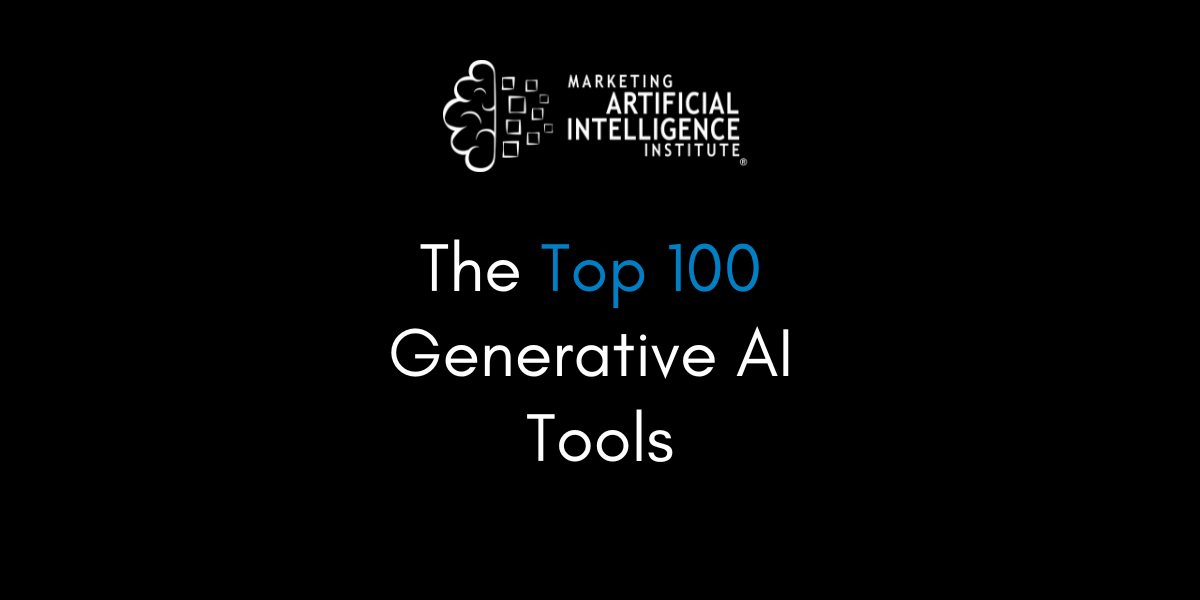Which generative AI apps are most popular right now?
Venture capital firm Andreessen Horowitz tries to answer that question every 6 months, cataloging the top 50 AI products by usage across web and mobile in its Top 100 Gen AI Consumer Apps list.
On Episode 112 of The Artificial Intelligence Show, me and Marketing AI Institute founder and CEO Paul Roetzer broke down what business leaders need to know about the list.
The Top 5 Generative AI Consumer Apps: Web vs. Mobile
In the list, Andreessen Horowitz ranks the top 50 "AI-first" web products based on unique monthly visits and the top 50 AI-first mobile apps based on monthly active users.
Here's how the rankings shake out:
Top 5 Web Products:
Top 5 Mobile Apps:
Key Trends Emerging from the Data
Andreessen Horowitz also looked at some key trends emerging from the data, especially when compared to their last report in March 2024.
- Creative Tools Dominate: A whopping 52% of tools on the web list are related to creative tasks. On mobile, content editing is the most popular use case.
- Multi-modality on the Rise: "The rise of multi-modality is very apparent,” says Roetzer. While image generation tools still represent 41% of the top content generation sites, other modalities like video and music are gaining steam.
- New Category: Aesthetics and Dating: Apps like LooksMax, which analyzes users' photos and voices to offer attractiveness tips, represent a new trend in AI-powered self-improvement and dating assistance.
- Discord as a Growth Driver: Discord traffic is becoming a leading indicator for apps that will climb the web and mobile ranks, especially for content generation tools.
- ByteDance's AI Push: TikTok's parent company, ByteDance, is making significant inroads in the AI app space. They launched six apps on the list, including ed-tech platform Gauth, bot builder Coze, and general assistant Doubao.
The State of AI Video Generation
While video generation tools are gaining popularity, Roetzer cautions that the technology is still in its early stages. "Video gen tools, you see these amazing demos and it looks awesome. But the reality is it's really, really slow," he explains.
Users may wait hours for short clips, and achieving consistency remains challenging.
The Business Side of AI Apps
Roetzer notes that while the consumer list is fascinating, he'd be interested in seeing a similar ranking for business-focused AI tools.
Data from Marketing AI Institute’s 2024 State of Marketing AI report shows that in the business world, tools like ChatGPT, Perplexity, Claude, Google Gemini, Adobe Firefly, Canva, Descript, and Grammarly are among the favorites.
AI in Education: A Paradigm Shift
One of the top mobile apps, PhotoMath (#3 in mobile), is used for math homework, showing how the impact of AI extends beyond social and creative applications.
Roetzer highlights a growing trend of students using AI assistants in real-time during classes.
"I've been seeing a lot of videos of college today where students have got their laptops and the laptop has AI running that's recording everything the professor is saying and even seeing the board and then doing analysis in real-time, solving problems in real-time," he says.
"We are in a paradigm shift in education and I just don't think we're, as a society, generally aware of how transformational this is going to be," Roetzer concludes. "All of it is just getting fundamentally reinvented before our eyes, and I don't know that we're, until you zoom out, you become aware of how significant the change is."
Mike Kaput
As Chief Content Officer, Mike Kaput uses content marketing, marketing strategy, and marketing technology to grow and scale traffic, leads, and revenue for Marketing AI Institute. Mike is the co-author of Marketing Artificial Intelligence: AI, Marketing and the Future of Business (Matt Holt Books, 2022). See Mike's full bio.


